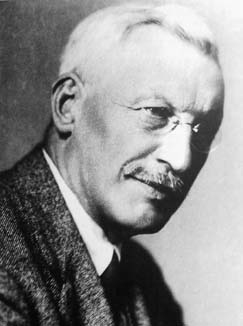Alfred Cardew Dixon facts for kids
Quick facts for kids
Alfred Dixon
|
|
|---|---|
 |
|
| Born |
Alfred Cardew Dixon
22 May 1865 |
| Died | 4 May 1936 (aged 70) |
| Alma mater | University of London Trinity College, Cambridge |
| Known for | Dixon elliptic functions Dixon's identity |
| Awards | Smith's Prize< |
| Scientific career | |
| Fields | Mathematics |
| Institutions | Cambridge University Queen's College, Galway Queen's University Belfast |
| Thesis | (1886) |
Sir Alfred Cardew Dixon (born May 22, 1865 – died May 4, 1936) was an important English mathematician. He was known for his work on special types of math problems called differential equations. He also developed unique mathematical tools, like the Dixon elliptic functions and Dixon's identity.
Contents
About Alfred Dixon
Alfred Dixon was born on May 22, 1865, in Northallerton, England. He went to the University of London and earned his Master of Arts (MA) degree.
His University Life
In 1883, Alfred Dixon went to Trinity College, Cambridge. He was a brilliant student. In 1886, he became the Senior Wrangler in the Mathematical Tripos. This means he was the top math student in his year at Cambridge.
In 1888, Dixon won the second Smith's Prize. This is a special award for students who show great skill in math and physics. He also became a Fellow of Trinity College, Cambridge, which is a high honor. Later, in 1897, he earned his Doctor of Science (Sc.D.) degree from Cambridge University.
His Teaching Career
Alfred Dixon became a professor of mathematics. From 1893 to 1901, he taught at Queen's College, Galway in Ireland. After that, in 1901, he moved to Queen's University Belfast. He stayed there until 1930. When he retired, he was given the title of Emeritus Professor. This means he was still honored for his past work.
Later Achievements
In 1904, Alfred Dixon was chosen to be a Fellow of the Royal Society. This is a very respected group of scientists. After he retired from Queen's University Belfast, he led the London Mathematical Society. He was their president from 1931 to 1933. In 1932, Queen's University Belfast gave him an honorary Doctor of Science (D.Sc.) degree. This was to recognize his great contributions to mathematics.
His Math Discoveries
Alfred Dixon was famous for his work on differential equations. These are math problems that involve how things change.
Integral Equations
He did early work on Fredholm integrals. He explored these ideas on his own, at the same time as another mathematician named Erik Ivar Fredholm.
Different Types of Equations
Dixon studied many kinds of equations. He worked on both ordinary differential equations and partial differential equations. He also looked into Abelian integrals, which are special types of integrals. He explored automorphic functions and functional equations. These are advanced math topics that help describe complex patterns.
Elliptic Functions
In 1894, Dixon wrote a book called The Elementary Properties of the Elliptic Functions. He is well-known for a special type of math tool called Dixon elliptic functions. These are special functions that repeat in a pattern. They have a unique property: if you take two of them, called cm and sm, and cube them, they add up to 1. This is written as cm(z)3 + sm(z)3 = 1.
Dixon's Identity
Alfred Dixon also has several important math rules named after him, known as Dixon's identity. These rules involve binomial coefficients and hypergeometric functions. They are useful for solving many math problems.

